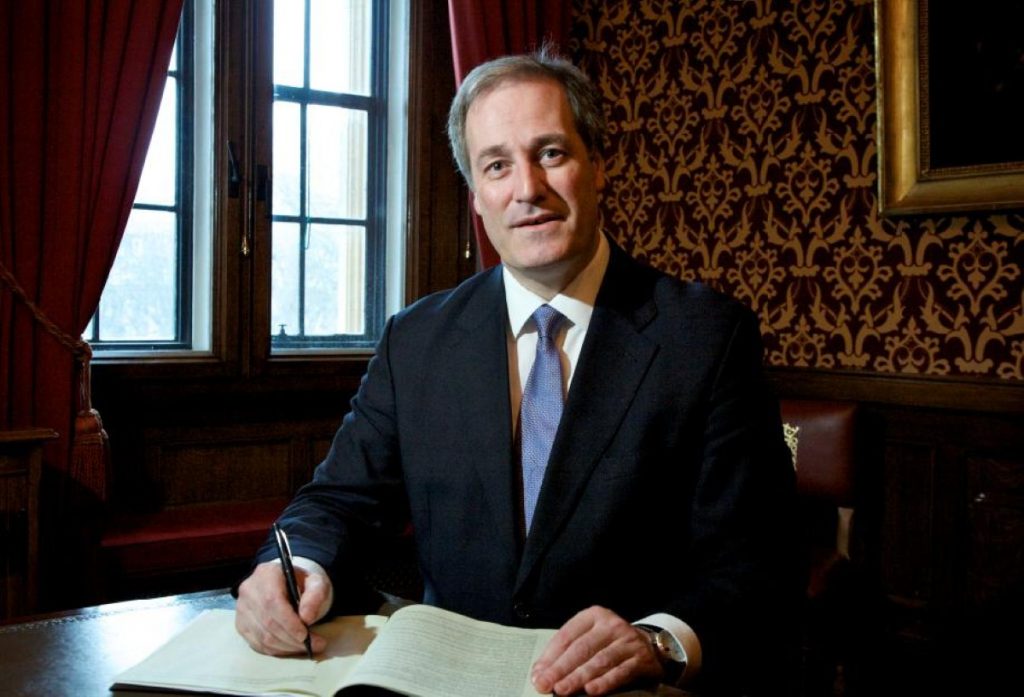Comment: Struggling fathers shouldn’t blame themselves
By Michael Bates
It is in the nature of modern political and moral debates conducted in parliament and the press that it consists largely of finger-pointing.
We point at behaviours that we object to as a society and produce stocks in the public square where an example can be made of the greedy banker, corrupt politician, binge-drinking young person, sexually abusive celebrity, preacher of hate, benefit cheat or lying police officer. In doing so we localise the problem in an individual and as such seek to avoid the wider uncomfortable truths about the society in which such abuses take place.
So when the Centre for Social Justice came out with research to suggest that nearly two million children in the UK grow up without any contact with their fathers the search was on for an unsuspecting feckless father to be hauled in front of the mob of public opinion for a damn good thrashing.


The problem with pointing, as I was told by my own father, is that when we point one finger at someone else we point three at ourselves. The Bishop of London recently claimed that the endemic disease of modern Britain was BSE (Blame Someone Else). With these points in mind, how should we as a society approach such research findings about the absence of fathers in the lives of so many of our young people?
I would suggest seven guiding considerations:
First, that the target in our sights is not the single mother who is left to cope without the father. Mothers are the ones taking all the responsibility we want both parents to share. They are the heroines, not the villains. They are the ones standing in the gap of the irresponsibility of others for the sake of their child.
Second, we should do so humbly conscious that in parenthood no one has all the answers. We all think we fail far more than we succeed. Parental guilt comes out with the umbilical chord.
Third, one folksy American friend always greets me with the same question: "How are you performing in your unique role?" It is in the nature of cynical Britain to sneer at such sentimental American notions, but it does remind us that there are many, many people who could do my job as a politician and probably do it a great deal better, but no one else can be a father to my children. If I don't do the job then the job doesn't get done.
Fourth, even a bad father is better than no father. Pick any measure of success in life – education, health, wealth and statistically a child who grows up with no contact with their father will perform less well – statistically, that is. There are many, many exceptions – not least Barack Obama, president of the United States who was raised by a single mother. Yet this week President Obama said: "There are single parents all across this country who do a heroic job raising terrific kids. But I still wish I had a dad who was not only around but involved; another role model to teach me what my mom did her best to instil – values like hard work, integrity, responsibility and delayed gratification – all the things which give a child the foundation to envision a brighter future for themselves… That's why I try every day to be for Michelle and my girls what my father was not for my mother and me."
Fifth, the benefits of fatherhood in a child's life extend beyond the walls of the family home and on to the streets of our towns and cities. Fatherhood is a public good and like other things we regard as a public good it should be protected in law and encouraged through the tax and benefit system and yet that is not currently the case – parents in receipt of benefits who choose to live together see real economic disadvantage as a result of doing something which will result in significantly better outcomes for society as a whole.
Sixth, we therefore cannot have a meaningful debate about educational standards, youth offending, teenage pregnancies, social mobility and employment opportunities without factoring in fatherhood.
Seventh, that this is not solely a crisis which impacts on the poorest in society. It impacts and challenges the middle classes too from whom are often drawn the finger-pointing elites. When visiting offices my general rule of thumb is that the size of the family picture on the executive's desk was probably in exact inverse proportion to the amount of time they actually spent with them.
Finally, I end almost where I started, namely that we are all too conscious of our failures to speak out on such issues. Biblical injunctions like "let him without sin cast the first stone" and "there go I but for the grace of god" rush to mind. Fathers shouldn't beat themselves up: We should just remember as in life, as in fatherhood, success is 90% just showing up.
Michael Bates is a Conservative member of the House of Lords
The opinions in politics.co.uk's Comment and Analysis section are those of the author and are no reflection of the views of the website or its owners.

